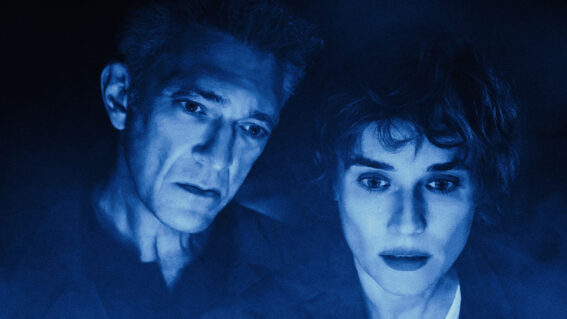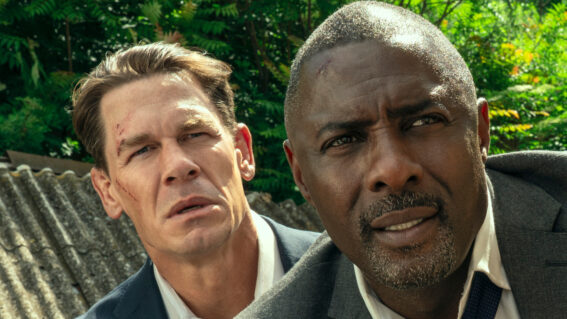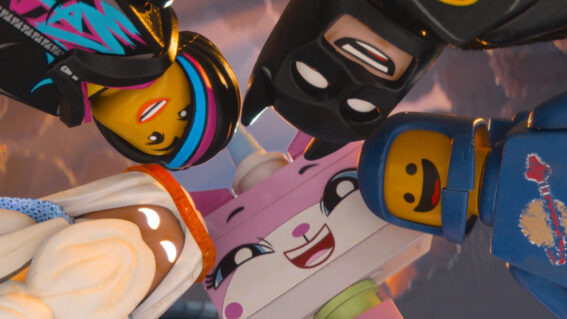Dream Scenario is an unmissably great Nicolas Cage movie
Like any good dream, Kristoffer Borgli’s A24 trip opens itself up to many troubling interpretations.
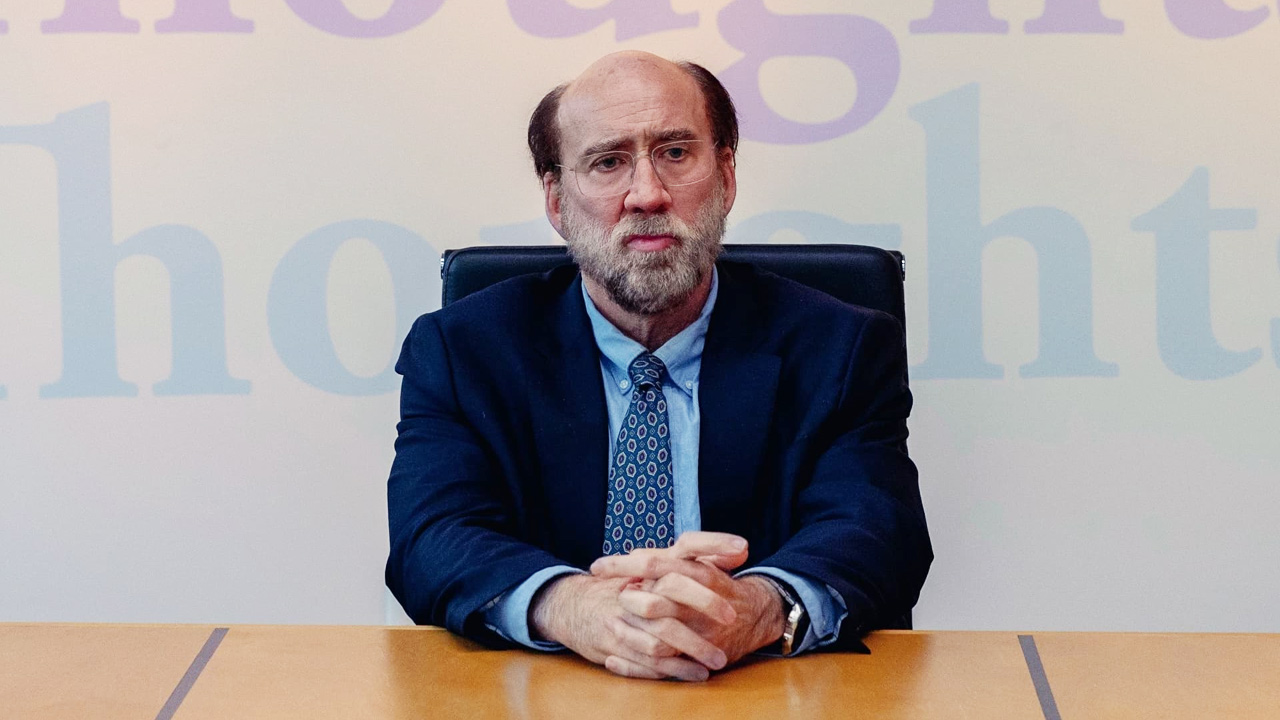
If you’re a Cage completionist—as Luke Buckmaster certainly is—trippy A24 dramedy Dream Scenario will reveal new facets of the actor’s contagious strangeness, playing a nobody who stars in everybody’s dreams.
Nicolas Cage’s new movie is deliciously strange and funny, plus inspiring, tragic, sad, happy—a full gamut of emotions. In Dream Scenario, writer/director Kristoffer Borgli presents a different way of handling the star’s eccentricity, Cage’s role requiring both a steady dramatic arc as well as a smattering of carnivalesque mini performances. Sporting a Costanza-esque receding hairline, he plays biology professor Paul Matthews, who, the point is stressed, is thoroughly ordinary: a little too exasperated to be mild-mannered, and slightly quirky in an ivory tower kind of way, but certainly uncool and unmemorable.
This is important when the protagonist obtains an unusual form of celebrity, appearing in the dreams of thousands of people he’s never met. Borgli wastes no time establishing this: the film’s first scene in fact emerges from the subconsciousness of Paul’s daughter Hannah (Jessica Clement), who dreams her father is sleepily raking leaves next to a pool while objects drop from the sky and crazy things happen.
Discussing the dream around the breakfast table, Paul’s worried about its implications. Soon he’ll be far more worried about many more dreams. When he visits a restaurant the person at the front desk asks: “don’t I know you?” She sort of does and sort of doesn’t. Then, at the theatre with his wife Janet (Julianne Nicholson), an ex approaches him and explains that he’s been popping up in her sleeping hours left right and centre. When Paul uneasily enquiries about the circumstances, she says “you’re still doing that thing, searching for the insult”—a good example of naturalistically imparting character information.
The protagonist has become the centre of a “dream epidemic,” you see, many others reporting his inexplicable presence. The film starts to get very funny when, during a lecture, Paul listens to people recounting their highly dramatic dreams and realises he’s never doing much in them. Never lending a hand, let alone saving the day. He’s just…there. This scene brought to my mind scholar Howard Suber’s argument, expressed in his book The Power of Film, that there’s no such thing as anti-hero: only someone who isn’t a hero yet. So, certain questions beckon. Will Paul become a hero? What challenges will he overcome? What missions will he pursue? Where the hell is this story even going?
Borgli avoids a neat arc, crafting a squirrelly narrative that doesn’t adhere to the usual structures and in fact is delightfully unpredictable; you can never guess where it’s headed. This much is obvious: Cage’s performance is wonderfully paradoxical, eccentric in subtle ways. That particular specimen of human we call Nicolas Cage completionists (here’s proof that I’m proudly one) may detect notes of his whiny, nasally sounding “American patriot” from Army of One, an idiotic flibbertigibbet who believes he’s on a mission from god to kill Osama bin Laden. And also of his comically exaggerated portrayal of neurosis (as screenwriter Charlie Kaufman) in the Spike Jonze film Adaptation.
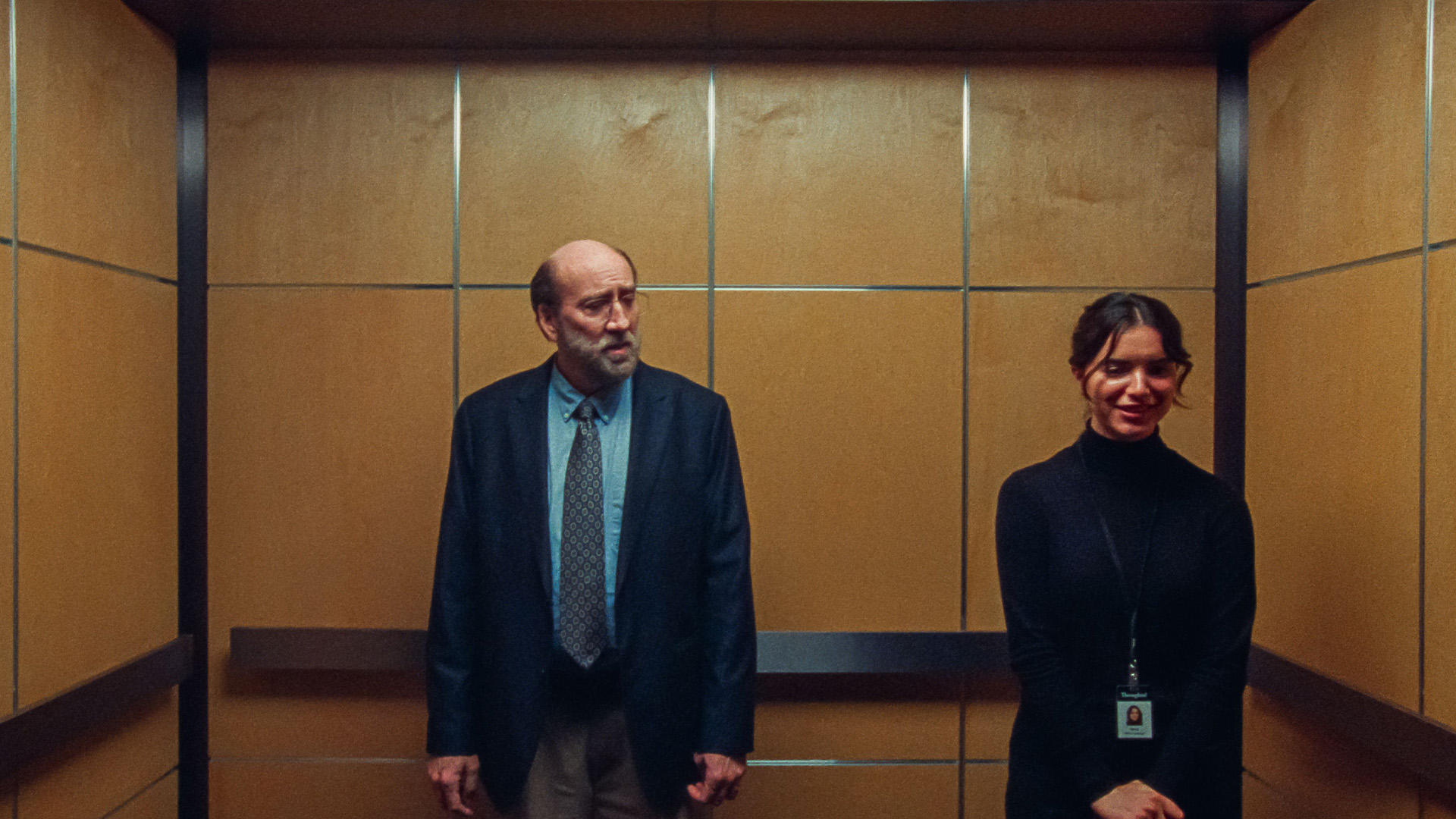
So what’s Dream Scenario actually…about? One obvious reading is that it’s in part an exploration of unwanted celebrity, with Paul for instance targeted by a stalker and typecast as the dude in people’s dreams. As the plot thickened, I considered more interesting interpretations. Is Borgli for example saying something about the helplessness of ourselves in relation to other people’s minds: how we can control our own actions but never how they’re perceived?
I wonder if the film is also about psychological phenomena as a kind of contagiousness: what happens when people believe in things because many others believe, creating an energy that spirals and spirals, soon impossible to know where and how it began, with too many copies of too many things that never had an original, taking us into the Campbellian domain of the myth of origins. If that sounds heavy, this film is actually effortlessly enjoyable: a highly original and idiosyncratic picture on par with other quirky, surreal classics such as Eternal Sunshine of a Spotless Mind and Being John Malkovich. Like any dream, there’s many ways you can interpret it.













